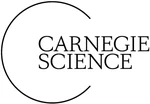Postdoctoral Fellowship at Carnegie Science EPL in Volcano Geophysics
Geodesy (G)
Natural Hazards (NH)
The Earth and Planets Laboratory (EPL), a division of the Carnegie Science in Washington, D.C., invites applications for an NSF-funded postdoctoral fellowship to investigate the magmatic architecture of submarine volcanoes using satellite altimetry-derived gravity data. This position is part of the National Science Foundation (NSF) funded project: “The magmatic architecture of the Kermadec-Tonga arc submarine volcanoes” (NSF Award #2525926 – PI Hélène Le Mével).
The position is available for up to two years, with an initial one-year appointment subject to renewal based on funding and performance. The preferred start date is January 2026, but can be flexible if needed.
For inquiries about the position or project, please contact Dr. Hélène Le Mével (hlemevel@carnegiescience.edu).
Project Overview:
While submarine volcanoes pose unique and global hazards—including volcanic plumes, pyroclastic flows, pumice rafts, and tsunamis—they remain poorly studied. The Kermadec-Tonga (KT) arc has one of the highest concentrations of submarine volcanoes worldwide, well mapped with high-resolution bathymetry, and experiences frequent eruptions with a wide range of erupted magma compositions. The project aims to use gravity anomalies derived from the new SWOT (Surface Water and Ocean Topography) satellite altimetry mission to image magma storage zones and hydrothermal systems beneath the KT arc volcanoes. The project will address key questions regarding the controls on crustal magma storage depth and volume, which are critical to the understanding of subduction zones and their associated hazards.
Fellowship Responsibilities:
The postdoctoral fellow will lead a multidisciplinary geophysical study of eight submarine caldera systems in the KT arc, with the following objectives:
- Analyze gravity anomalies from both SWOT altimetry and shipborne data.
- Quantify the resolution and uncertainties of satellite-derived gravity versus ship data.
- Construct 3D density models using inversion techniques. Where available, conduct joint inversions of gravity and magnetic data.
- Integrate petrological and geochemical data to develop conceptual models of magma storage and hydrothermal systems at these volcanoes.
- Optional: contribute to code sharing and outreach, including the development of open-source tools or ArcGIS StoryMaps to communicate results.
Qualifications
Minimum: The applicant must have completed a doctoral degree in geophysics, physics, volcanology, or a related field at the time of appointment.
Preferred:
- Experience with gravity, magnetic, or other potential field data.
- Background in inverse theory or joint inversion techniques.
- Proficiency in scientific programming (e.g., Python preferred).
- Familiarity with marine geophysical data analysis is a plus.
- Interest in volcanology, multidisciplinary approaches, and collaborative science.
Application Instructions
Materials Required:
- Cover letter outlining your interest, qualifications and research interest (1-2 pages)
- Curriculum Vitae including publications
- Contact information for two references
To apply, please submit materials through Interfolio at: https://apply.interfolio.com/171329
Equal Employment Opportunity Statement
Carnegie Institution for Science has a long-standing commitment to equal employment opportunity for all employees and applicants for employment. All applicants will receive consideration of employment without regard to race, color, religion, gender, sexual orientation, gender identity or expression, national origin, age, genetic information, disability, veteran status or any other characteristic protected by applicable federal, state, or local laws.

